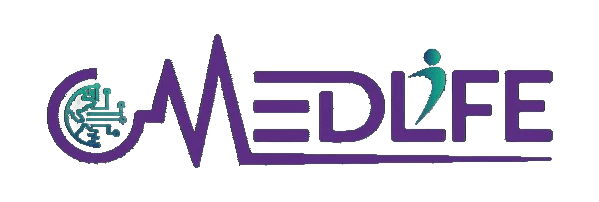In healthcare, medical coding is a vital step that transforms diagnoses and treatments into universal codes, ensuring smooth billing and data management. But just how long does it take to complete this coding process? Many factors come into play, whether you’re managing a busy clinic or are curious about a career in coding. At MedLife, we’re diving into what influences the time it takes to complete medical coding and how each step fits into the bigger healthcare picture.
Key Factors Influencing Time in Medical Coding
1. Complexity of the Case – Routine Check-Ups vs. Complex Surgeries
How long accurate medical coding takes depends a lot on the case itself. For routine check-ups or minor treatments, coding can be pretty quick. These cases usually only involve a few codes, which experienced coders can handle in minutes. However, cases with surgeries, multiple diagnoses, or chronic conditions demand much more time.
For instance:
- Routine Visits: Check-ups and basic treatments might take only a few minutes to code.
- Complex Cases: Cases involving surgeries, multiple diagnoses, or long treatment plans need detailed documentation, which takes more time to process accurately.
At MedLife, our certified coders are trained to handle both simple and complex cases without delays, ensuring accuracy in medical coding no matter the complexity.
2. Experience of the Coder – Why Practice Makes Speedy
A coder’s experience level directly impacts how fast they work. Experienced coders familiar with codes and healthcare regulations can get through coding tasks quickly and confidently. Newer coders, though skilled, may take extra time double-checking codes and verifying details to ensure accuracy.
- Experienced Coders: Years in the field give seasoned coders an intuitive grasp of systems like ICD-10 and CPT codes, allowing them to work efficiently.
- New Coders: Less experienced coders take longer as they review and verify their work for precision.
At MedLife, our team’s experience allows us to work quickly without sacrificing accuracy, helping providers avoid delays and receive faster reimbursements.
3. Accuracy and Attention to Detail – Balancing Speed and Precision
Speed is important, but accuracy in medical coding is essential. Even a small mistake can lead to a denied claim or delayed payment. That’s why coders must carefully verify each code against patient records, cross-reference documents, and review additional provider notes as needed.
- Ensuring Correct Codes: Coders must check that every code accurately reflects the patient’s diagnosis and treatment.
- Avoiding Costly Errors: Striking the right balance between speed and accuracy is critical to keeping claims on track.
At MedLife, we focus on both precision and efficiency, so claims go through the first time, helping practices maintain consistent revenue.
4. Type of Healthcare Facility – From Small Clinics to Big Hospitals
The setting matters when it comes to medical coding time. Small clinics often have routine, straightforward cases, which means coding can be quicker. On the other hand, hospitals and specialized centers handle a variety of complex cases requiring extensive coding.
- Smaller Clinics: Fewer codes and simpler cases mean faster coding tasks.
- Hospitals and Specialized Centers: Facilities with a wide range of treatments and procedures take longer to code due to the variety of services and detailed documentation needed.
MedLife supports coding for all types of healthcare settings, ensuring that no matter the facility size, every case gets the careful attention it needs.
5. Technology and Automation – The Game Changer in Medical Coding
With technology advancements, coding is faster than ever. Tools like coding software and automation have streamlined the process, allowing coders to work more efficiently.
- Automated Coding Tools: Some software can suggest codes based on medical records, helping coders save time.
- Electronic Health Records (EHR): EHR systems speed up finding and entering information, which simplifies the process from start to finish.
At MedLife, we combine the latest technology with experienced human oversight, ensuring that each code is accurate, even when automation is involved.
6. Training and Certifications – Why Certified Coders Work Faster
Training and certification make a big difference in how efficiently a coder works. Certified coders, especially those credentialed by organizations like the American Academy of Professional Coders (AAPC) or the American Health Information Management Association (AHIMA), are prepared to tackle a wide variety of cases with ease.
- Comprehensive Training: Certified coders are trained in medical terminology, anatomy, and specific coding systems, allowing them to work quickly and accurately.
- Specialized Knowledge: Coders with specialty training, such as network or out-of-network coding, can handle specific tasks faster, thanks to their focused expertise.
At MedLife, we employ highly trained, certified coders to tackle all coding challenges with precision and speed.
How Long Does It Really Take to Code?
The time it takes to complete medical coding varies. Routine cases may only take minutes, while more complex situations require additional time and care. Factors like case complexity, coder experience, facility type, technology use, and coder certifications all play a role in the timing.
At MedLife, we’re here to ensure quick, accurate coding for any healthcare setting, so your practice stays efficient and your billing is always on track. Whether you’re managing a small clinic or a large hospital, reach out to MedLife for coding support that helps keep your revenue flowing smoothly.
Frequently Asked Questions:
Q: How long does it typically take to code a simple patient visit?
A: For routine visits or minor treatments, coding can often be completed in just a few minutes. Experienced coders familiar with the system can handle simple cases quickly and efficiently.
Q: Why does complex coding take longer?
A: Complex cases involve more procedures, diagnoses, and documentation. Each aspect requires precise coding, which takes more time to ensure accuracy and avoid claim denials.
Q: Does technology completely eliminate the need for manual coding?
A: While technology like automated coding tools and EHRs speeds up the process, human coders are still essential for reviewing and ensuring accuracy. Technology can suggest codes, but certified coders ensure the codes are applied correctly.
Q: How does certification affect a coder’s efficiency?
A: Certification provides coders with in-depth training, making them faster and more accurate. Certified coders are familiar with complex medical terminology, anatomy, and coding standards, allowing them to handle both routine and specialized cases effectively.
Q: Can coders work across different healthcare facilities?
A: Yes, experienced and certified coders are trained to work across various settings, from small clinics to large hospitals. However, the type of facility can impact the coding time due to the case complexity associated with each setting.
Q: How often should codes be reviewed or updated?
A: Regular reviews are essential as coding standards, and healthcare regulations evolve. Coders should stay updated on coding changes annually to ensure compliance and minimize errors.


